- Home
- Alex Irvine
Phase Three: Marvel's Captain America: Civil War Page 2
Phase Three: Marvel's Captain America: Civil War Read online
Page 2
Cap knew Natasha had the biological sample. It was time to put Rumlow down and start figuring out what it was… and who Rumlow was stealing it for.
But Rumlow wasn’t fighting back. He got to his knees and took off his helmet, showing his heavily scarred face. As Cap approached, Rumlow looked up at him, defiant and full of hate… but Cap could see sadness, too. And pain. “I think I look pretty good, all things considered,” Rumlow said.
Cap didn’t care to chat with Rumlow. Why had he quit? “Who’s your buyer?” he asked.
“Your pal, your buddy. Bucky.”
Cap wasn’t sure what he’d expected, but he couldn’t believe that. “What did you say?”
“He remembered you. I was there. He got all weepy about it—until they put his brain back in the blender. He wanted you to know something. He said to me, ‘Please tell Rogers… when you gotta go, you gotta go.’” Rumlow’s grin got bigger. He showed Cap a small detonator switch in his fist. “And you’re coming with me.”
Cap started to flinch back from the explosion as Rumlow squeezed the switch, but then something incredible happened. Instead of blasting out to engulf Captain America and everyone else in the area, the explosion churned and rumbled around Rumlow. Cap saw the telltale wisps of red energy and looked back to see Wanda Maximoff with her hands outstretched. Scarlet Witch held the explosion’s burst in check, her hands out and cupped in front of her. Then she lifted Rumlow and the fireball up into the sky, meaning to let it go off harmlessly.
But Rumlow’s bomb was more powerful than she’d guessed. When she released it, the explosion tore through several floors of a nearby building. Smoke poured from the building’s shattered windows, and debris fell into the street. The people who had been running from the battle now turned their shocked faces up to see what the Avengers had done.
This was bad. Instantly, Cap started trying to keep it from getting worse. “Sam, we need fire and rescue on the south side of the building.” He ran to help. The last thing he saw was Wanda, looking up at the burning building with an expression of horror on her face.
CHAPTER 3
It was 1991. Tony Stark’s mother, Maria, was singing and playing the piano. She stopped playing and looked over as Howard Stark pulled a blanket off Tony, who was stretched out on the couch. His parents had asked him to come home from MIT and watch the house for a weekend. “Wake up, dear. Say good-bye to your father.”
“Who’s the homeless person on the couch?” Howard cracked, holding up the blanket.
Tony got up and adjusted his Santa Claus hat, his way of displaying some holiday spirit. “This is why I love coming home for Christmas… right before you leave town,” Tony shot back.
“Be nice, dear,” his mother admonished. To Howard, she said, “He’s been studying abroad.”
Howard didn’t seem impressed. “Do me a favor,” he said, pulling the hat off and tossing it on the couch. “Try not to burn the house down before Monday.”
Now standing, Tony nodded with mock seriousness. “Okay, so it’s Monday. That is good to know. I will plan my poker party accordingly. Where are you going?”
“Your father’s flying us to the Bahamas for a little getaway,” his mother said.
“We might have to make a quick stop,” Howard added.
“At the Pentagon, right?” Tony asked. He couldn’t resist making a crack about his father’s secret military business. “Don’t worry. You’re going to love the holiday menu at the commissary.”
Howard looked at him, and Tony felt all the old conflicting feelings: love, resentment, and frustration. “You know, they say sarcasm is a metric for potential,” Howard said. Tony turned his back and walked away to the other side of the room. “If that’s true, you’ll be a great man someday.” He waited a beat, then turned to Tony’s mother. “I’ll get the bags.”
“He does miss you when you are not here,” Maria said quietly to Tony, trying to lessen the tension. “And frankly, you’re going to miss us. Because this is the last time we’re all going to be together. You know what’s about to happen. Say something. If you don’t, you’ll regret it.”
She was right. Tony turned to his father and said the things he’d never been able to persuade himself to say in real life. “I love you, Dad. And I knew you did the best you could.”
And then the adult Tony Stark appeared, observing the hologram projection of his younger self and his long-dead parents.
“That’s how I wished it happened,” he said. “By Barely Augmented Retro Framing, or BARF—I got to work on that acronym—an extremely costly method of hijacking the hippocampus to clear… traumatic memories.”
Tony leaned on the piano. The hologram rippled and flickered into a jigsaw pattern of pixels. Then the Stark living room as it had been in 1991 was gone. He was standing in an auditorium at the Massachusetts Institute of Technology, where he was being honored as a famous graduate. The stage was just white cubes and a stand-in piano, to give the simulation some tactile reality. The emotional moment he’d just shown them… It had never happened. Not that way. It was all a simulation, and that was what he was there to talk about. He’d built the BARF system to re-create memories so people could experience them again and try to confront them by doing things they’d never been able to do in real life. It was a great piece of tech, but it wasn’t making him feel any better.
“It doesn’t change the fact that they never made it to the airport, or the things I did to avoid processing my grief,” he said. Taking off his glasses, Tony looked out over the audience. They were hanging on his every word.
“Plus,” he added, “six hundred and eleven million dollars for my little therapeutic experiment. No one in their right mind would’ve ever funded it. The challenges facing you are the greatest mankind has ever known,” Tony said. They were silent, maybe hoping for some story about one of the Avengers’ battles. But Tony wasn’t here for that.
He shifted his weight, setting up for the speech’s big finish. “Plus most of you are broke,” he said, getting a small laugh. “Or rather, you were. As of this moment, every student has been made an equal recipient of the inaugural September Foundation Grant.” A few gasps sounded from the crowd as certain people guessed what this meant. For the rest of them, Tony spelled it out. “As in, all of your projects have just been approved and funded.”
The auditorium erupted in wild applause. Over the pandemonium, Tony called out, “No strings. No taxes. Just… reframe the future.”
Then he paused as the teleprompter showing his speech mentioned Pepper Potts. A shadow passed over his face, and he stopped following his prepared remarks. “Starting now,” he said. “Go break some eggs.”
He walked off the stage, leaving behind a lecture hall full of very happy students. The professor in charge of the event met him in the wings. “That, uh… that took my breath away, Tony. So generous, so much money. Out of curiosity… will any portion of that grant be made available to faculty? I know, gross, but hear me out. I have got this killer idea for a self-cooking hot dog. Basically, a chemical detonator embedded…
Tony didn’t want to hear it. Seeing Pepper’s name had shocked him. “The restroom is this way, yeah?” he asked, pointing down the hall.
The professor nodded as an assistant strode up to him. “Mr. Stark, I am so sorry about the teleprompter. I didn’t know Miss Potts had canceled. They didn’t have time to fix it,” she said.
“It’s fine,” Tony said, waving the apology away. “I’ll be right back. We’ll catch up later.”
In the bathroom, Tony splashed some water on his face and looked in the mirror. He’d helped a lot of people today. That felt good. But the report from Lagos was heavy on his mind, and coming on top of losing Pepper… he was frazzled. Not that he could blame her. Not really. Tony had loved her, but she couldn’t always rely on him, and both of them knew it. Now she was gone.
After Tony took a minute to get himself together, he headed for the elevator. In the hall outside the bathroom, a midd
le-aged woman was waiting for him. A fan, was his first thought. They were always finding him in unexpected places. “That was really sweet, what you did for the young people,” she said.
“Oh, they deserve it,” he said, and meant it. “Of course, it helps to ease my conscience.”
She nodded. “They say there’s a correlation between generosity and guilt. But you got the money. Break as many eggs as you like. Right?”
Tony wasn’t sure what to say about this. He touched the elevator’s call button. “Are you going up?”
“I’m right where I wanted to be,” she said, and reached into her purse. Alarm bells went off in Tony’s head, and he took a step forward to grab her wrist.
She didn’t struggle. She just looked at him. “Okay, okay,” he said, and stepped back again. “I’m sorry. It’s an occupational hazard.” The longer he worked with the Avengers, the more Tony had started to see threats everywhere. He was jumpy, overtired.
She slapped a photograph against his chest and held it there until he accepted it. “I work for the State Department. Human Resources. I know it’s boring. But it enabled me to raise a son. I’m very proud of what he grew up to be.” Tony felt a terrible sense of dread that he knew what she was about to say. “His name was Charlie Spencer,” the woman went on. “You murdered him. In Sokovia. Not that it matters in the least to you. You think you fight for us. You just fight for yourself. Who’s going to avenge my son, Stark?” she asked, pinning him with her angry gaze and leaning hard on the word avenge. “He’s dead. And I blame you.”
She walked away. Tony held the picture of Charlie Spencer. For one of the few times in his life, he had no idea what to say. Because no matter how he sliced it, Charlie Spencer’s mother was right. The Avengers had killed her son.
CHAPTER 4
In one of the living areas of the Avengers headquarters, Steve Rogers, out of his Captain America uniform, watched news reports about the disaster in Lagos. “Eleven Wakandans were among those killed during a confrontation between the Avengers and a group of mercenaries in Lagos, Nigeria, last month. The traditionally reclusive Wakandans were on an outreach mission in Lagos when the attack occurred.”
The camera cut to the Wakandan king, T’Chaka, speaking at a podium. “Our people’s blood is spilled on foreign soil. Not only because of the actions of criminals, but by the indifference of those pledged to stop them. Victory at the expense of the innocent is no victory at all.”
The announcer resumed speaking over video of T’Chaka and the burning building in Lagos. “The Wakandan king went on to—”
Steve turned off the TV and went into the next room, where Wanda was watching another channel on her own TV. “What legal authority does an enhanced individual like Wanda Maximoff have to operate in Nigeria?” a talking head was asking as part of a panel discussion.
Steve shut that one off, too. “It’s my fault,” Wanda said into the silence that followed.
“That’s not true.”
“Then turn the TV back on. They’re being very specific.”
“I should’ve grabbed that bomb,” Steve said. He was the leader—it’d been his job. He sat next to her on the couch. “Rumlow said ‘Bucky’ and… all of a sudden, I was a sixteen-year-old kid again in Brooklyn. People died. It’s on me.”
She wasn’t accepting that. He could tell. “It’s on both of us,” she said.
Steve had to remind himself that she was new to the dangerous business of being an Avenger. He’d fought a lot of battles. She hadn’t. “This job…” he said. “We try to save as many people as we can. Sometimes that doesn’t mean everybody, but if we can’t find a way to live with that, next time… maybe nobody gets saved.”
Vision phased through the wall, interrupting them. Steve was always surprised to see him do that. The gem in his forehead gave him powers that none of them completely understood. Ultron might have tried to destroy humanity, but instead he created a new Avenger, and maybe the most powerful of them all. Those vast powers made a strange contrast with the way he dressed, like a middle-school history teacher. He liked V-neck sweaters.
Wanda looked up. There was a connection between them. Steve could see that clearly. “Vis, we talked about this.”
“Yes,” Vision acknowledged. “But the door was open, so I assumed…” He paused before going on. “Captain Rogers wished to know when Mr. Stark was arriving.”
“Thank you. I’ll be right down.”
“I’ll… use the door,” Vision said, catching himself before he phased out through the wall again. He was still learning how his powers could make people a little uncomfortable. “Oh, and apparently, he’s brought a guest.”
“You know who it is?” Steve asked.
Vision paused at the door. “The secretary of state.”
The current active Avengers—James Rhodes, Steve Rogers, Wanda Maximoff, Vision, Tony Stark, Sam Wilson, and Natasha Romanoff—sat at a long conference table as Secretary of State Thaddeus Ross paced while he decided how to begin a difficult conversation.
“Five years ago, I had a heart attack,” the secretary said. He liked to frame his policy decisions with stories to put people at ease, especially when he expected people to resist the decision. “I dropped right in the middle of my backswing. Turned out, it was the best round of my life, because after thirteen hours of surgery and a triple bypass, I found something forty years in the army never taught me: perspective.” He paused, the practiced politician giving his opening words a chance to sink in. “The world owes the Avengers an unpayable debt. You’ve fought for us. Protected us. Risked your lives. But while a great many people see you as heroes, there are some… who would prefer the word vigilantes.”
“And what word would you use, Mr. Secretary?” Natasha asked.
“How about dangerous?” Ross shot back. “What would you call a group of US-based, enhanced individuals who routinely ignore sovereign borders and inflict their will wherever they choose and who, frankly, seem unconcerned about what they leave behind them?” He had a remote control in his hand, and with those last words he started a video queued up on a display screen that took up most of one wall. Clips of the Avengers’ most violent and desperate battles started to play as Secretary Ross listed the names of the cities that were being shown. “New York.” Massive Chitauri creatures undulated through Midtown Manhattan, leaving destruction in their wakes. “Washington, DC.” A burning Helicarrier plunged into the Potomac River. “Sokovia.” Ultron’s massive island, intended as a missile, rose into the sky. “Lagos.” The wreckage of the burning building.
“Okay,” Steve said. The Lagos footage hit Wanda especially hard. “That’s enough.”
“For the past four years, you operated with unlimited power and no supervision. That’s an arrangement the governments of the world can no longer tolerate. But I think we have a solution.” An aide handed him a bound sheaf of papers. “The Sokovia Accords. Approved by one hundred and seventeen countries. It states that the Avengers shall no longer be a private organization. Instead, they’ll operate under the supervision of a United Nations panel, only when and if that panel deems it necessary.”
“The Avengers were formed to make the world a safer place,” Steve said. “I feel we’ve done that.” He was trying to be respectful of the chain of command, but he also needed to be heard.
“Tell me, Captain,” Ross said, “do you know where Thor and Banner are right now?” Steve didn’t answer. He couldn’t. Thor and the Hulk had been off on their own since the battle with Ultron. “If I misplaced a couple of thirty-megaton nukes, you can bet there’d be consequences. Compromise. Reassurance. That’s how the world works.” Looking around the room, Ross saw the resistance and hostility on the Avengers’ faces. He decided to give them a little more context. “Believe me, this is the middle ground.”
“So there are contingencies.” Rhodey, speaking for the first time since they’d all sat down, didn’t look happy.
“Three days from now, they meet in Vienna to
ratify the accords.” Ross gave them one last sweeping glance, making sure they understood the nature of the situation. “So talk it over.”
Natasha asked the question they were all thinking. “And if we come to a decision you don’t like?”
Ross had clearly prepared for that. “Then you retire,” he said without hesitation. He left them to their thoughts.
CHAPTER 5
Soviet agent Karpov had escaped Russia a long time ago and hidden himself away in a new, anonymous life in Cleveland, Ohio. His past was his past. He didn’t want any part of it anymore. But Karpov had worked deeply in top-secret operations, and he knew that he could never be truly free of it. He couldn’t just start a new life. He had to destroy the old one.
Karpov couldn’t quite bring himself to do that. He still kept some mementos of his work at the secret Winter Soldier base, and one of them was the red book. As long as he had it, no other person on Earth could activate the Winter Soldier.
Someone knocked at his door. “Hello?” a man called from outside. “Is this your car out front? I jumped the curb. Maybe we could take care of it ourselves.” Karpov went to the door and listened, but he didn’t answer. He didn’t care about a dent in his car. His privacy was far more important. Let this fool worry about his own insurance company. “If you prefer to call the cops, then that’s okay, too, I guess,” the man said, sounding disappointed.

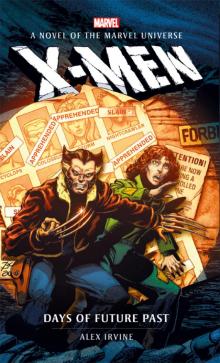 Marvel Novels--X-Men
Marvel Novels--X-Men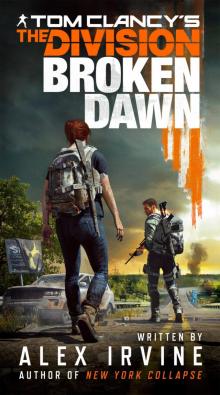 Tom Clancy's the Division
Tom Clancy's the Division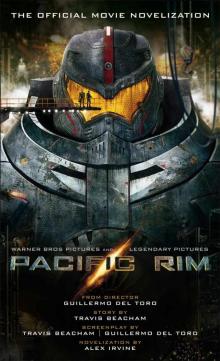 Pacific Rim: The Official Movie Novelization
Pacific Rim: The Official Movie Novelization Anthropocene Rag
Anthropocene Rag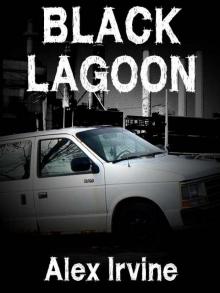 Black Lagoon
Black Lagoon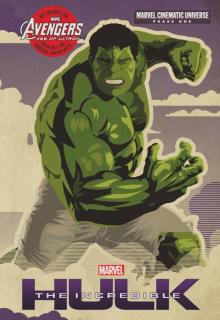 Phase One: The Incredible Hulk
Phase One: The Incredible Hulk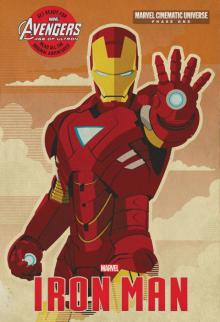 Phase One: Iron Man
Phase One: Iron Man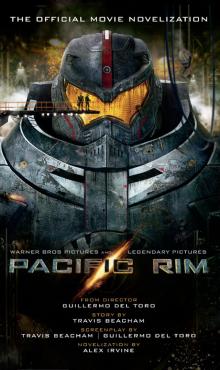 Pacific Rim
Pacific Rim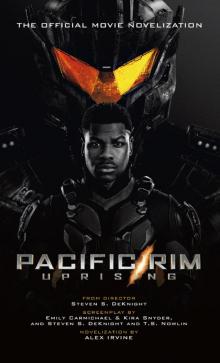 Pacific Rim Uprising--Official Movie Novelization
Pacific Rim Uprising--Official Movie Novelization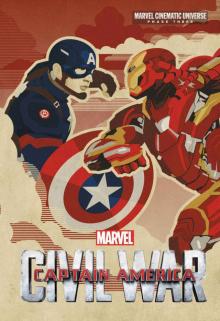 Phase Three: Marvel's Captain America: Civil War
Phase Three: Marvel's Captain America: Civil War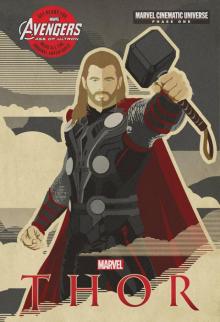 Phase One: Thor
Phase One: Thor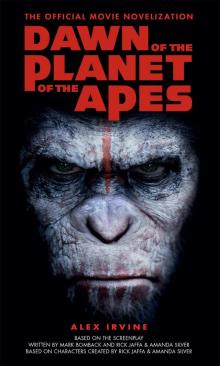 Dawn of the Planet of the Apes: The Official Movie Novelization
Dawn of the Planet of the Apes: The Official Movie Novelization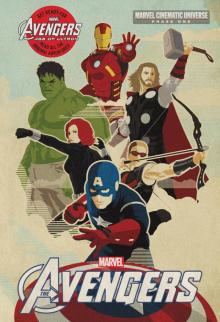 Phase One: Marvel's The Avengers
Phase One: Marvel's The Avengers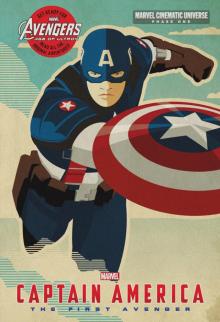 Phase One: Captain America
Phase One: Captain America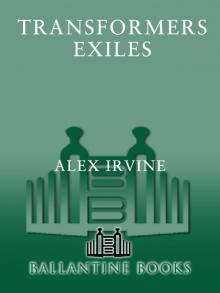 Exiles
Exiles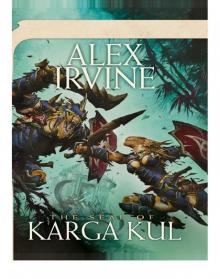 The Seal of Karga Kul: A Dungeons & Dragons Novel
The Seal of Karga Kul: A Dungeons & Dragons Novel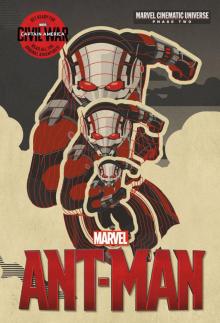 Marvel's Ant-Man - Phase Two
Marvel's Ant-Man - Phase Two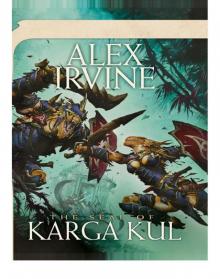 The seal of Karga Kul (dungeons and dragons)
The seal of Karga Kul (dungeons and dragons)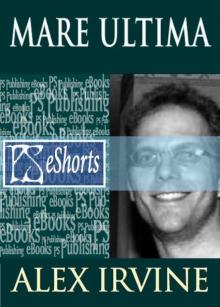 Mare Ultima
Mare Ultima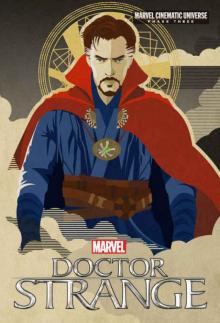 Phase Three: MARVEL's Doctor Strange
Phase Three: MARVEL's Doctor Strange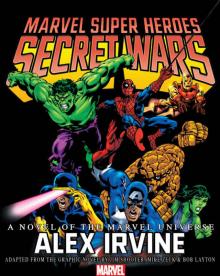 MARVEL SUPER HEROES SECRET WARS
MARVEL SUPER HEROES SECRET WARS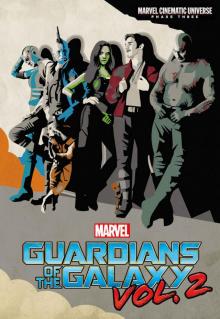 Phase Three: MARVEL's Guardians of the Galaxy Vol. 2
Phase Three: MARVEL's Guardians of the Galaxy Vol. 2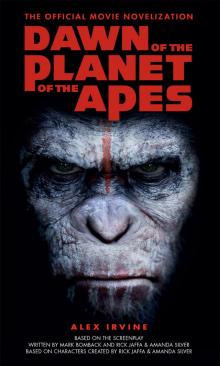 Dawn of the Planet of the Apes
Dawn of the Planet of the Apes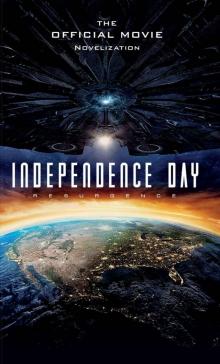 Independence Day: Resurgence: The Official Movie Novelization
Independence Day: Resurgence: The Official Movie Novelization